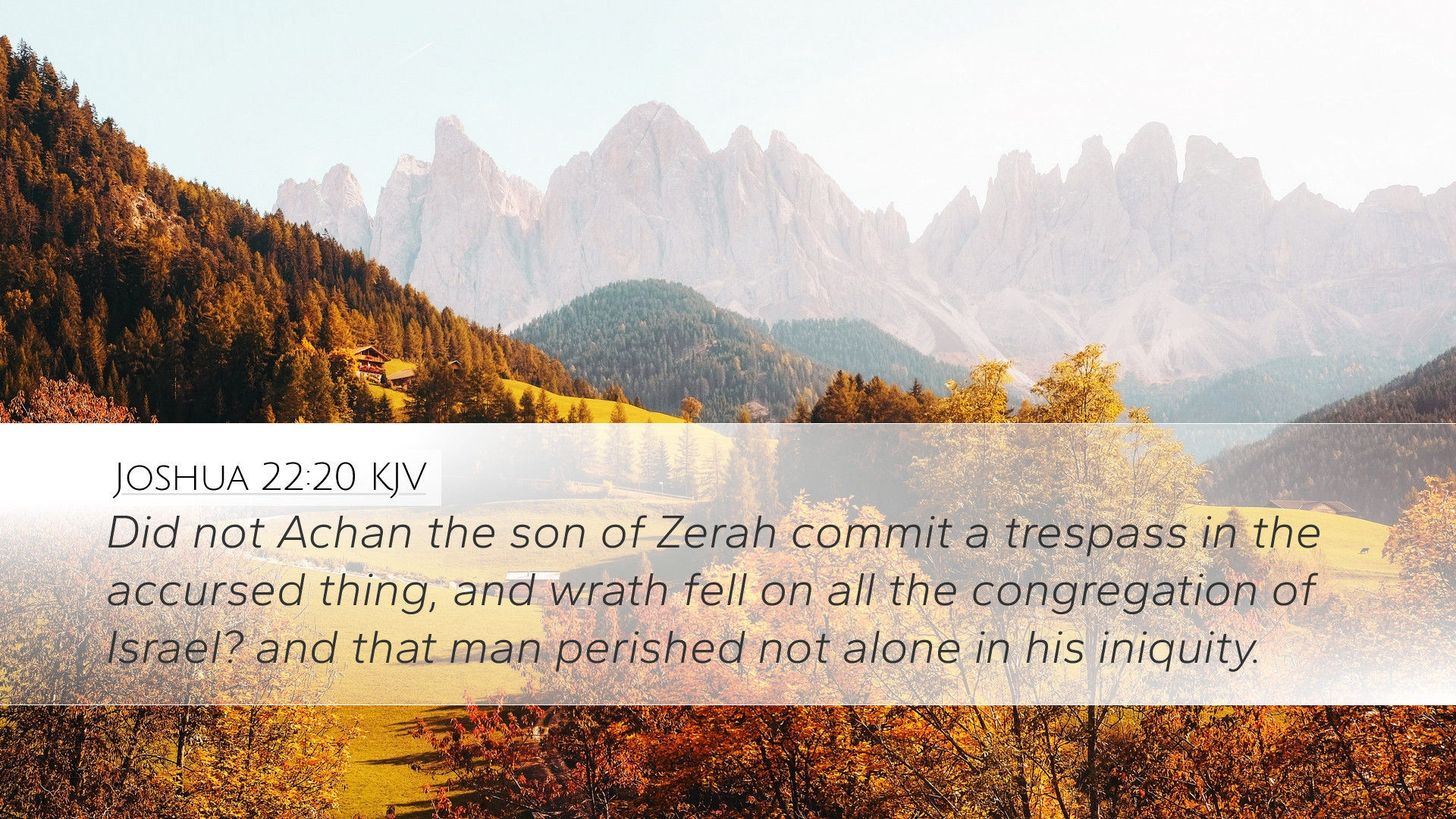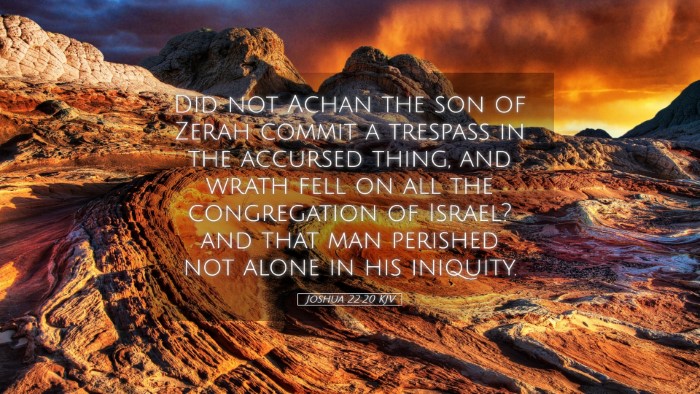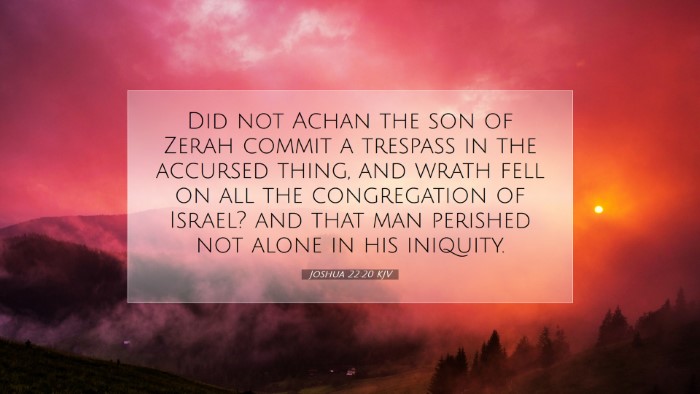Bible Commentary on Joshua 22:20
Verse Context: Joshua 22:20 states, "Did not Achan the son of Zerah commit a trespass in the accursed thing, and wrath fell on all the congregation of Israel? And that man perished not alone in his iniquity." This verse occurs in a critical juncture where the eastern tribes of Israel are being challenged for their actions after the conquest of Canaan.
Overview of the Passage
This verse serves as a solemn reminder of the consequences of sin and disobedience to God. The reference to Achan’s sin illustrates the impact that individual actions can have on the collective body of believers. It warns not only of the spiritual and communal repercussions of personal transgression but also highlights the importance of accountability within the community of faith.
Insights from Public Domain Commentaries
Matthew Henry's Commentary
Matthew Henry emphasizes the significance of Achan's sin as a pivotal lesson in community responsibility. He notes that Achan's disobedience brought dire consequences not just upon himself, but upon his family and the entire nation of Israel. Henry posits that the “wrath fell on all the congregation of Israel” because all are connected in a covenant relationship with God.
Henry underscores that the act of sin—specifically Achan's taking of the accursed thing—led to God's judgment, illustrating that God's justice extends visibly into the community. He stresses that believers should take heed of how individual sin can lead to broader repercussions, serving as a poignant call for self-examination.
Albert Barnes' Notes on the Bible
Albert Barnes delves into the theological implications of Achan's sin. He draws the parallel between Achan's singular act of treachery and the ultimate fate of the Israelite camp. Barnes explicates that the “trespass in the accursed thing” signifies not just a literal act of theft but a breaking of the covenant relationship that Israel had with God.
Barnes articulates that the wrath of God “fell on all the congregation” suggests that the community bears a shared identity that can both support and punish through God's providence. He concludes that personal righteousness must be coupled with communal responsibility, thus reinforcing the significance of holiness and dedication within the larger body of believers.
Adam Clarke's Commentary
Adam Clarke provides an extensive historical and exegetical analysis of Joshua 22:20. He affirms that Achan's sin serves as a type of cautionary tale concerning the severity of divine judgment. Clarke argues that Achan's greed was emblematic of greater problems within Israel, suggesting that similar attitudes may lie dormant among the people.
Moreover, Clarke's commentary articulates that Achan's story is more than a narrative about individual punishment; it serves as an admonition against taking lightly the holiness of God's commands. He argues that God's holiness demands that sin must be purged both personally and communally, indicating that unconfessed sins within a congregation can lead to divine disfavor.
Theological Reflections
The lessons drawn from Joshua 22:20 are profound for today’s readers. They stress the necessity of accountability and the interconnectedness of the faith community. In modern applications, this passage invites pastors, students, and theologians to examine their own lives and churches for areas of potential disobedience that could lead to collective consequences.
Implications for Church Leadership
- Responsibility: Leaders must cultivate an environment where confession and accountability are encouraged, mitigating the risk of communal judgment due to hidden sins.
- Awareness of Influence: Leaders should remind their congregations of the interconnectedness defined in Scripture; personal choices can influence the entire community.
- Covenant Community: The value of spiritual unity and support in covenant relationships should be emphasized. Just as Achan's sin affected the whole nation, so too can the spiritual health or crisis of individual members affect the entire body of Christ.
Conclusion
Joshua 22:20 resonates as a lasting reminder that individual actions bear communal weight. As elucidated by Henry, Barnes, and Clarke, believers are called to live in accordance with God's commands not just for themselves but for the wellbeing of their faith communities. Such insights compel a deeper reflection on the nature of sin, accountability, and the integral relationship within the body of Christ—urging not only personal righteousness but fostering a collective commitment to holiness.


